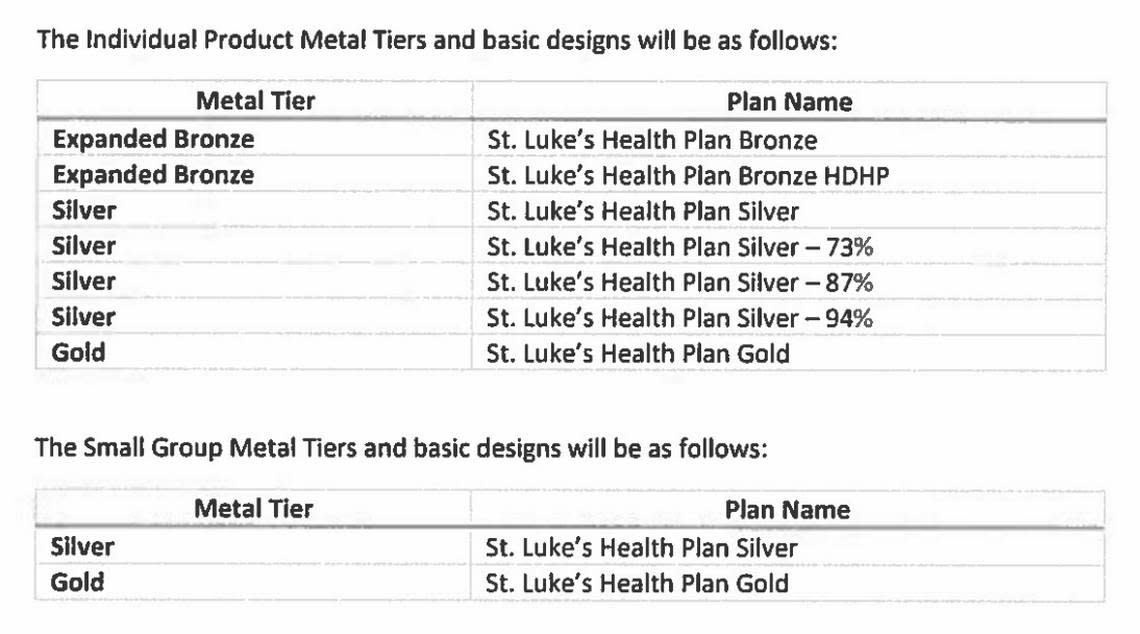St. Luke’s is joining the health insurance business. Could it become monopolistic?
St. Luke’s Health System, the largest health care system in Idaho, is launching its own health insurance plans.
The nonprofit subsidiary, called St. Luke’s Health Plan, will bring new coverage options to residents in West Central and South Central areas of the state. Enrollment begins mid-October with plans taking effect in January.
While the new plans won’t change who can receive care at St. Luke’s facilities, the move will put the company in control of both delivery and payment for many of its health services.
So you might wonder: Could St. Luke’s use its health insurance plans to refer patients to its own hospitals and clinics? And wield an unfair advantage over other providers as a result?

When St. Luke’s announced its decision to enter the health insurance business in August, we asked Idaho Department of Insurance Director Dean Cameron what he thought. He said that yes, St. Luke’s Health Plan can certainly, and likely will, send patients to providers within the health system’s network. But he said it’s not a concern.
“We believe we have all the safeguards to make sure it doesn’t become a monopolistic arrangement or an abuse of power,” Cameron told the Statesman by phone. “They had to submit documentation to us to show that consumers would be reasonably treated if they went out of network.”
A spokesperson for St. Luke’s main competitor, Saint Alphonsus Health System in Boise, declined to comment.
Cameron said Idaho is fortunate to have eight carriers offering health insurance plans, including Blue Cross of Idaho Health Services Inc., Molina Healthcare of Idaho, Mountain Health Co-Op, PacificSource Health Plans, Regence BlueShield of Idaho Inc., SelectHealth Inc. and UnitedHealthcare.
Plus, health insurance carriers in the state already work with providers to develop competitive contracts.
“Other states are lucky to have one health plan or two health plans,” Cameron said. “Our insurance carriers work with providers of all kinds to develop the most competitive contracts, and we want them to, because then that gives us as consumers the lower price.”
He said St. Luke’s agreed that it will charge all health insurers the same rate for any particular medical service, although there’s nothing in the law requiring it to do so.
Cameron said the health system has been transparent and cooperative through every step of the process, but he’ll be watching to ensure market standards and fair-trade practices are met.
“They want to be very compliant with us,” he said. “So I would be surprised if they tried to change that.”
The health system, which has hospitals and clinics around the state, filed its notice of intent to offer health insurance in March with the state’s health insurance department. The initial coverage area will include Ada, Adams, Blaine, Boise, Camas, Canyon, Cassia, Custer, Elmore, Gem, Gooding, Jerome Lemhi, Lincoln, Minidoka, Owyhee, Payette, Twin Falls, Valley and Washington counties.

Matt Wolff, president of the company’s health plan, believes that combining health services and insurance will make an already complicated process more seamless.
“The St. Luke’s Health Plan will connect the delivery of care with the funding of care, resulting in a simpler and cost-conscious health insurance option for our communities,” Wolff said in a news release.
St. Luke’s hospitals and clinics will continue accepting most other health insurance plans, according to the release.
Virus risk high in 4 Idaho counties, CDC says. Plus: What COVID-19 is doing at hospitals
FTC says Idaho firm’s data can track visits to abortion clinics. The firm fights back
